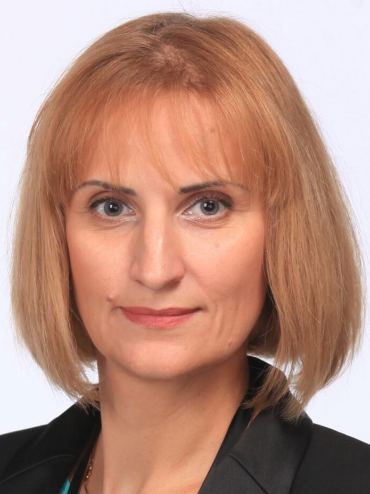Sociаl Technologies
Faculty of Sociology
Name
Sociаl Technologies
Program code
1763
Qualification awarded
master of sociology
Length of programme
2 years
Number of credits
120
level of qualification according to the National Qualification Framework and the European Qualifications Framework
7
Qualification level
Second (Master)
Discipline
Social and behavioral sciences
Speciality
KnowledgeField EN
Specific admission requirements
Specific arrangements for recognition of prior learning
Presence of a bachelor's or specialist's degree
Qualification requirements and regulations, including graduation requirements
Programme learning outcomes
PR 01. Analyze social phenomena and processes using empirical data and modern concepts and theories of sociology.
PR 02. Carry out diagnostics and interpretation of social problems of Ukrainian society and the world community, their causes and consequences.
PR 03. Develop and implement social and interdisciplinary projects taking into account social, economic, legal, environmental and other aspects of public life.
PR 04. Apply scientific knowledge, sociological and statistical methods, digital technologies, specialized software to solve complex problems of sociology and related fields of knowledge.
PR 05. Search, analyze and evaluate the necessary information in the scientific literature, data banks and other sources.
PR 06. Fluently communicate orally and in writing in Ukrainian and one of the foreign languages when discussing professional issues, research and innovation in the field of sociology and related sciences, including in the context of cooperation with European and Euro-Atlantic institutions.
PR 07. Solve ethical dilemmas in accordance with the norms of professional ethics of the sociologist and universal values.
PR 08. It is clear and unambiguous to convey knowledge, own conclusions and arguments on sociology and related fields of knowledge to specialists and non-specialists, in particular to students.
PR 09. Plan and perform research in the field of sociology, analyze the results, justify the conclusions.
PR 10. To teach sociological and related disciplines in educational institutions.
PR 11. Summarize the results of their own research and present them in scientific reports, publications.
Learning outcomes determined by the educational program
PR 12. Compare socio-cultural differences and social inequalities; reasons for their occurrence and consequences for the development of society.
PR 13. To substantiate the use of the latest methods of collecting and analyzing sociological information to solve practical problems in various spheres of public life.
PR 14. Demonstrate the ability to collect from various sources, systematize and summarize sociological information for the preparation of analytical decisions, expert opinions and recommendations.
PR 15. Be able to professionally prepare all types of reporting documents and scientific publications based on the results of sociological research.
PR 16. Use knowledge of modern sociological theory and methodology to solve problems of applied research of social communities, institutions, processes and public opinion.
PR 17. To use knowledge of modern marketing technologies and methods of business project development in practice.
PR 18. Demonstrate the ability to interact with representatives of business, government and the public in order to solve social problems.
PR 19. Be able to apply modern methods and technologies of public relations, plan political and PR campaigns and develop measures for their implementation.
Form of study
Full-time form
Examination regulations and grading scale
Assessment of students' academic achievements is carried out according to the ECTS system. Current control - oral and written questioning, assessment of work in small groups, testing, defense of individual and group research tasks and projects. Final control - exams and tests, differentiated test. Final certification - preparation and public defense (presentation) of qualifying master's work. Rating scale Excellent 90-100 Good 75-89 Satisfactory 60-74 Poor Fail 0-59 Credited / Passed 60-100 Not credited / Fail 0-59 Adherence to academic integrity in the preparation and defense of master"s theses carried out in accordance with the REGULATIONS on the system of detection and prevention of academic plagiarism at the Taras Shevchenko National University of Kyiv (Rector's Order №197-32 of March 10, 2020)
Оbligatory or optional mobility windows (if applicable)
Work placement
Work-based learning
Director of the course

Olha
Anatoliivna
Bezrukova
Department of Branch Sociology
Faculty of Sociology
Faculty of Sociology
Occupational profiles of graduates
Access to further studies
Education at the third educational-scientific (doctor of philosophy) level
Subjects
As part of the curriculum, students study the following disciplines
Methods of teaching sociology
Code: ОК3,
Research Paradigms in Sociology
Code: ОК1,
Methodology and organization of scientific research with the basics of intellectual property
Code: ОК5,
Academic writing
Code: ОК7,
Methodology of Social Inequality Research
Code: ОК2,
Research Design
Code: ОК4,
Methods of Qualitative Data Analysis in Sociology
Code: ОК9,
Professional and corporate ethics
Code: ОК10,
Theory of Social Technologies
Code: ОК8,
Project and Grant Activities
Code: ОК14,
Multivariate Data Analysis in R
Code: ОК12,
Modeling and Forecasting of Social Processes
Code: ОК11,
Advanced methods of Data Analysis in Sociology
Code: ОК6,
Practical Training in Social Research
Code: ОК13,
Assistant Practice
Code: ОК15,
Social Networks Analysis
Code: ОК14,
Business communication technologies
Code: ОК11,
Social technologies in politics
Code: ВБ 2.1,
Practical Training
Code: ОК10,
Master’s Qualification Thesis
Code: ОК12,
Social Technologies for Public Sector
Code: ВБ2.3,
Social Technologies in Advertising
Code: ВБ2.4,
Social technologies of PR and image-making
Code: ВБ2.4,